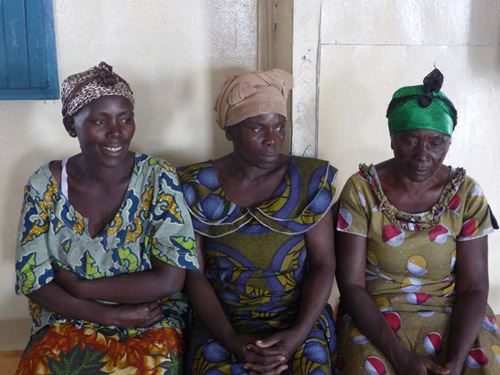
In the last month we have seen the crisis in eastern Congo once again make headline news, reminding us of the human tragedy that personifies this ongoing conflict. Reported attacks on communities in the Walikale mining region including the systematic rape and torture of over 150 women in a few short days sent tremors through the international community, reminding us of the insecurity faced by civilians in the mining regions of eastern Congo resulting from the lucrative trade in conflict minerals.
While there is no doubt that sustainable peace in eastern Congo requires a multi-dimensional response from international, regional and national actors, including comprehensive security sector reform, resettlement of displaced populations, dismantling of rebel groups, and accountability for perpetrators. It is difficult to imagine these efforts being successfully if the economic incentives to wage conflict far outweigh those resulting from peace and stability.
Thanks to our supporters raising their passionate voices and taking action over the past year, the direct links between brutal campaigns of violence and the thirst for control over eastern Congo’s lucrative minerals are now widely recognized. Most notably, U.N. Special Adviser on Sexual Violence in Conflict, Margot Wallstrom, publicly highlighted recent U.S. legislation addressing conflict minerals, called on Secretary Clinton to follow through on its commitments and recommended that other European countries follow suit. This international recognition is an incredible milestone that each of our supporters had a direct hand in making possible.
In a recent trip to the region Enough’s co-founder John Prendergast and actress Ashley Judd also heard and saw widespread evidence of the ripples created by US legislation. They both assess the passing of the conflict minerals trade provisions as a real opportunity to change the reality for communities if implemented and acted upon properly.
While the legislation is only a first step, it is an important one. Support from Congolese Catholic Bishops, civil society groups in North and South Kivu, human rights groups such as African Association for the Defense of Human Rights, along with formal statements from their Ministry of Information, demonstrate the hope that this legislation brings.
In the wake of news from Goma of President Kabila’s decision to shut down mining operations in the provinces of North and South Kivu and Maniema, we can seize hope that successful efforts to pass conflict minerals legislation here in the United States demanding transparency and accountability for supply chains has caught the attention of regional governments and set off a chain reaction which would have otherwise been impossible.
This shift in status quo however is not yet guaranteed to deliver the results we seek. If undertaken in the absence of comprehensive reform, any ban or embargo on minerals from eastern Congo will do very little to solve the humanitarian crisis and in the longer term may worsen the situation.
Given that Congo is home to a substantial supply of the world’s tungsten, tin, and tantalum, eventually the need for these minerals will reemerge and our supply chains will be tainted once more. This makes a certification scheme that eliminates the market for conflict minerals and formalizes the mining sector an essential ingredient for reinstating peace, stability, and human security back to eastern Congo.
With less money left to be gained from the illicit trade in minerals, peace becomes a more attractive paradigm. This shift of government and international economic policy opens the space for essential state-level reform, including security sector reform and accountability for state and non- state actors involved in the conflict
In order to ensure that efforts to address the conflict in eastern Congo are truly effective our collective voices and action are more important than ever. We must continue to call on the US government and companies to demonstrate committed leadership and deliver on three critical steps:
- Implementation of the conflict minerals legislation requiring companies to trace and audit their supply chains.
- Drive the process of securing a robust certification scheme for minerals from the region.
- Support for Congolese-led efforts to reform the security sector and dismantle armed groups.
Thinking back over the past few months it is clear that the power to create meaningful change stems from the relentless activism of concerned individuals. It is therefore no secret that we will be relying on consumer support to shift the economic incentives of the minerals trade. Visit the RAISE Hope for Congo campaign for more information about our ongoing activities and ways you can get involved.

